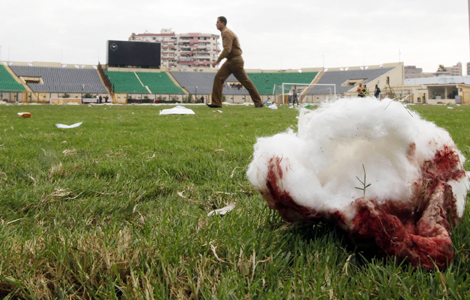|
|||||||||||
Liu Rui got a liver transplant in a hospital in Guangzhou in December last year, but he knows he is one of the lucky few.
There are reportedly 300,000 patients who need liver transplants in China every year, but only 1,500 underwent the operation last year, 0.5 percent.
The desperate shortage of donors also applies to other vital organs. One million patients need kidney transplants every year and last year only 4,000 received the life-saving operation.
The scarcity leads to rampant illegal trading of organs.
"Only when the allocation of organs is fair, more people will be ready to donate organs," said Li Peng, a doctor with Guangzhou General Hospital of Guangzhou Military Command.
A survey by the Beijing News revealed more young people are ready to accept organ donation, but are worried the organs might be sold by hospitals or doctors.
"I'm not sure the organs will go to people who really need them," said Zhao Bo, who works in the financial industry in Beijing.
The Ministry of Health began to build a nationwide system to monitor organ transplants last year.
More than 160 hospitals qualified for organ transplants have joined the system on which organs are shared.
Hospitals are required to register donated organs for unified allocation.
In 2010, the Ministry of Health issued a rule to direct allocation of organs to guarantee open and fair distribution.
Insiders say more than 200 livers and kidneys were successfully distributed in April 2011 through the system, but it only covers the allocation of livers and kidneys.
In practice, some hospitals still do not register donated organs on the system. Only three of the 17 hospitals interviewed by the Beijing News offered data on the number of organs donated and allocated last year, others refused saying "it's a sensitive issue" or were busy.
Some doctors claim a habit has formed among fellow doctors over the last 20 years which has hindered the promotion of the sharing system.
In the past, when there were no allocation rules or sharing system, doctors or hospitals had the final say on who received organ transplant operations. There were some loopholes in management, added Li Peng.
Connections play big role when a doctor or hospital makes a decision, said an anonymous doctor who has been working in the organ transplantation for 20 years.
Hot Topics
Kim Jong-il, Mengniu, train crash probe, Vaclav Havel, New Year, coast guard death, Internet security, Mekong River, Strait of Hormuz, economic work conference
Editor's Picks

|

|

|

|

|

|







